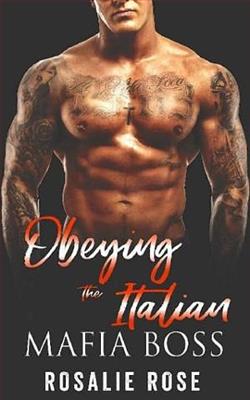Page 57 of These Summer Storms
Franklin must have loved this man and his unbearable astuteness. “You know what I did to him. To Storm.”
He nodded. “You’re pretty famous.”
“Don’t you mean infamous?”
He shook his head once. Firm. “Do you want to tell me about it?”
“I’m sure you know the important parts,” she quipped. “I have my own section on the Storm Inc. Wikipedia page.”
“Is that where the important parts are?”
It wasn’t.
She rephrased. “You know the parts that were important to the world. The parts that came from the women who spoke up.” Alice had been twenty-six years old, working in the industrial design department at Storm, when she’d discovered that a dozen women at the company had stood together and reported the inappropriate behavior of Storm’s head of operations—a man who had abused his power for years.Motivated by the sea change in the world and by each other, his victims had come forward, hoping to be heard, believed, and taken care of.
The misconduct—which ran the gamut from innuendo to blatant harassment to accusations and eventual proof of physical assault—was announced at a time when businesses across the globe were facing a social and fiscal reckoning. When Alice had heard, she’d gone straight to Franklin, only to discover that instead of standing up, turning on the lights, and cleaning house, her father had approved a spate of quiet settlements, airtight NDAs, and a tidy sweeping under the nearest rug.
Alice had been outraged. She faced him head-on, furious when he’d defended himself, explaining that she was hardly more than a child and couldn’t understand the weight of the scandal. The women would be well compensated—generously—and the COO given a quick exit via golden parachute and not a lick of public punishment, but this was business, and if Alice was going to run Storm someday, these kinds of unpleasant decisions were par for the course. Couldn’t she see the situation was nuanced? That this was the best solution for everyone?
She couldn’t see it, though. It wasn’t a solution. It waswrong.
When she’d left her father’s office, Alice had dashed off her email resignation, called her friend Roxanne, and put the company on blast.
The piece broke in theJournalthree days later, victim accounts alongside her own public statement of disappointment in the corporation’s leadership. The news had a field day, staff walked out of Storm offices across the globe, customers threatened boycotts mere weeks before the release of the latest 1107, the COO was disgraced, then arrested…and the stock price had taken a hit.
All because of Alice Storm, heir to a fortune and the unlikely new face of the fight against late-stage capitalism.
“You changed the world.”
She shook her head. “They changed the world; I just knew who to call.”
He nodded, turning the wheel, calling the shift in the boom as it swung, making sure she was safe from it. “And your dad was pissed.”
“That,” she said, “is an understatement.”
Franklin had a legacy to protect—he was a billionaire, sure, but he liked being arelatableone. One who’d come from his parents’ garage. A guy who was supposed to understand that the people who’d run the world in the past weren’t the ones who would lead it into the future.
The Storm PR team worked overtime and within hours the whole thing had been spun. How shocked he was. How devastated. How much he cared. There were massive public donations to victims’ rights organizations. An overhaul of Storm HR. And an apology tour for the ages: colleges, corporations, news magazines, papers of record—Franklin sat down with anyone who asked.
Except Alice.
He’d never forgiven her.
“He punished me,” she said, half to Jack, half to the water. “I shouldn’t have been surprised. It was the first time I’d ever fought him.” She paused. “Or, rather, it was the first time I’d ever won.”
The wind died down in the wake of the words, letting Alice finish the story. “He spent two years refusing to acknowledge my existence. I would come to family dinners, to holidays—and he would look straight through me. There’s this photograph that ran in the Style section a year or so after everything went down. The two of us, at some benefit, smiling brightly, looking sonormal. And I remember how weird it was to see it, because I had literally that morning moved out of the apartment I’d been living in—the one he’d bought for me.”
“He kicked you out?” The question was sharp with disbelief.
“No,” she said. “That would have required him to speak to me. But that apartment reeked of his anger, and I wasn’t going to live there anymore.” She watched the water gleam for a bit, and then added, “Anyway. That went on for two years, until the last time I was here.”
“You argued.”
She nodded. “The last time I was on this boat.” She waved at a passing boat, grateful for something to do with herself. “The last time I saw him.”
“God. I shouldn’t have—”
“No,” she said, horrified by the beginning of the apology, like he was going to handle her differently now, gently. Thoughtfully. She didn’twant that. “Please don’t. If it hadn’t happened here, it would have happened somewhere else. That’s what people get for crossing Franklin Storm. The wild thing is, I never even wanted to work at Storm.”















